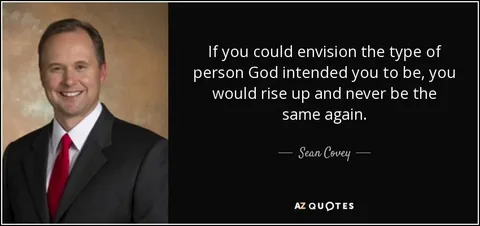Who Is the CEO of Education? A Full Guide
Outline
- Introduction: What Does It Mean to Be the CEO of Education?
- The concept of clarification
- Leadership is a crucial aspect in the field of education
- Who Are the Influential Figures in Education?
- Famous CEOs, leaders and presidents
- Education leadership has many different roles
- The Responsibilities of an Educational Leader
- Set the vision and set goals
- The management of people and resources
- Promoting change and innovation
- The Impact of Leadership on Education
- What impact does leadership have on students and teachers?
- Stories of success from leaders who are effective
- What Makes a Great Educational CEO?
- Key attributes and knowledge
- Empathy is essential and communicating
- Conclusion: The Future of Educational Leadership
- The latest trends in leadership in education
- Inspiring the next generation of leaders
- FAQs
Introduction: What Does It Mean to Be the CEO of Education?
Have you ever thought, “Who is the CEO of education? “It’s an incredibly difficult issue, isn’t it?
There’s not a single person responsible for education, like within a firm.
In the field of education, leadership can take many varieties, from school superintendents to district superintendents to educators who are innovators in educational technology.
However, the idea of a “CEO” can represent anyone who is influencing the future of education.
Let’s get started and figure out what the meaning of being chief executive of education is really about and what it means for us all.
Who Are the Influential Figures in Education?

Key Players in Educational Leadership
Here are some of the most influential people you may have heard of:
- Randi Weingarten, president of the American Federation of Teachers, is a key player in promoting teachers and educational policies.
- Sal Khan Sal Khan: the creator of Khan Academy, Sal is an important player in online education, bringing education accessible to everyone.
- Arne Duncan: Former U.S. Secretary of Education He was influential in reshaping the education policy on a national scale.
Diverse Roles in Education Leadership
Education leadership isn’t only concerned with being on the top of the school district.
It also concerns:
- School principals who lead their teams on a daily basis.
- Supervisors who manage several districts and schools.
- Educational technology pioneers who are innovating how we learn.
Every aspect plays a part in shaping the education landscape.
The Responsibilities of an Educational Leader
What do you need to do to lead in the field of education?
Here’s a quick overview of the most important responsibility:
Setting the Vision and Goals
An effective educator needs to have a clear idea of what they want to accomplish.
This includes:
- Determining what success means for both teachers and students.
- Set measurable goals that will be used to monitor your progress.
Managing Resources and People
That’s where CEO mentality is where the CEO mindset really comes into play.
Leaders must manage:
- Budgets and financing.
- Personnel and their well-qualified advancement.
Promoting Innovation and Change
In this fast-paced, ever-changing world, it’s not a feature.
Great leaders encourage:
- Innovative teaching techniques.
- Technology integration.
The Impact of Leadership on Education

How Leadership Affects Students and Teachers
You may be thinking, “So what?”
What is the role of leadership in the field of education?
Here’s why:
- Leadership that is positive can motivate teachers to do their desirable.
- The students benefit from enthusiastic teachers who are concerned about their progress.
Success Stories of Leaders who are Effective
Check out schools with outstanding school leaders.
These are the most frequent examples:
- Higher school student performance.
- Increased morale of teachers.
For example, a leader who actively engages teachers in the decision-making process will result in a more enthusiastic and motivated workforce.
What Makes a Great Educational CEO?

Let’s discuss the characteristics that make up an outstanding educational leader.
Key Traits and Skills
A few traits to be looking for in a successful educational CEO are:
- visionary thought The ability to see the bigger picture and envision the future.
- Excellent communication talent: being able to communicate to parents, students and teachers.
- Empathy means understanding the needs of other people and adjusting accordingly.
The Importance of Empathy and Communication
Effective leaders are able to listen.
They create an atmosphere where everyone feels appreciated.
This could lead to:
- More solid relations in the community of schools.
- Improved collaboration between students and staff.
Conclusion: The Future of Educational Leadership
The question “Who is the CEO of education?” does not have a single answer.
The role of education leadership is varied and multifaceted.
As we progress, we must encourage the future generations of leadership.
Trends in Education Leadership
New trends are emerging, like:
- A greater emphasis on mental health issues in schools.
- A greater emphasis on technology in the field of education.
Encouraging Future Leaders
Let’s encourage those who wish to lead in their careers.
Inspiring creativity, communication, and compassion in future leaders will help shape the future of education.
FAQs
Who is the chief executive of education?
There’s no Education’s chief executive. The leadership is spread across various positions, including school superintendents, district superintendents, and other influential figures in the field of education.
What is the role of an educator?
Educational leaders define the vision and goals they set, oversee resources and staff, and encourage the process of innovation and transformation within their institutions.
What is the role of leadership in education?
Effective leadership can help teachers boost student performance and create an improved and more productive learning environment.
What are the qualities that make a great educator?
The most important qualities are the ability to think clearly, strong communication skills, and a genuine concern for staff and students.
Why is leadership in education important?
Educational leadership affects the experience of both teachers and students and influences the overall effectiveness and performance of schools.
Understanding who leads education helps us appreciate the complex world of learning.
Let’s keep the conversation going and support those making a difference!




